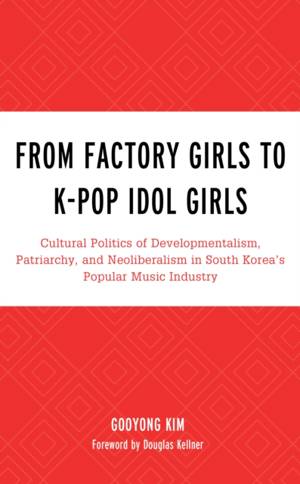
- Afhalen na 1 uur in een winkel met voorraad
- Gratis thuislevering in België vanaf € 30
- Ruim aanbod met 7 miljoen producten
- Afhalen na 1 uur in een winkel met voorraad
- Gratis thuislevering in België vanaf € 30
- Ruim aanbod met 7 miljoen producten
Zoeken
From Factory Girls to K-Pop Idol Girls
Cultural Politics of Developmentalism, Patriarchy, and Neoliberalism in South Korea's Popular Music Industry
Gooyong Kim
€ 83,45
+ 166 punten
Uitvoering
Omschrijving
Kim combines historical contextualization with political economy of the media and critical textual analysis to investigate the socio-ideological effects of K-Pop in the existing networks of power and domination in gender relations. He examines K-Pop female idols' individualism and identity formation through the lens of Korea's cultural politics.
Specificaties
Betrokkenen
- Auteur(s):
- Uitgeverij:
Inhoud
- Aantal bladzijden:
- 196
- Taal:
- Engels
- Reeks:
Eigenschappen
- Productcode (EAN):
- 9781498548847
- Verschijningsdatum:
- 6/07/2020
- Uitvoering:
- Paperback
- Formaat:
- Trade paperback (VS)
- Afmetingen:
- 152 mm x 229 mm
- Gewicht:
- 290 g

Alleen bij Standaard Boekhandel
+ 166 punten op je klantenkaart van Standaard Boekhandel
Beoordelingen
We publiceren alleen reviews die voldoen aan de voorwaarden voor reviews. Bekijk onze voorwaarden voor reviews.







